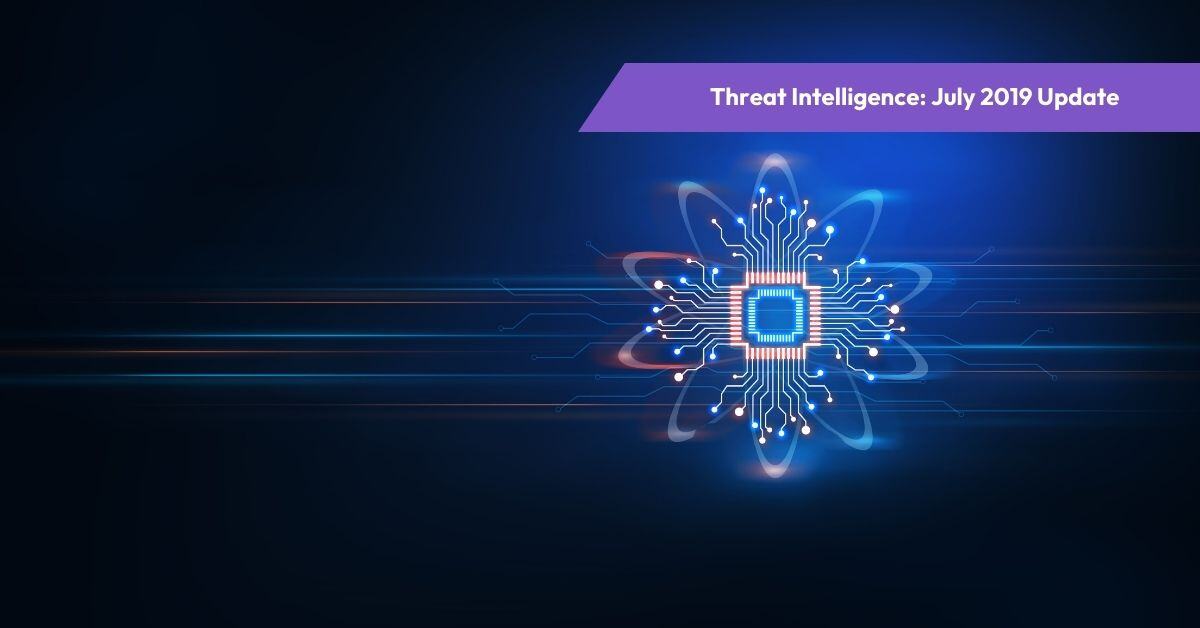July 2019 Threat Intelligence (CRITICAL ALERT)
This month, Microsoft has patched 77 vulnerabilities; 16 of which are ranked critical and 52 marked as important. Also included within this month’s updates are fixes for 5 vulnerabilities that were made public (but not exploited).
11 of the critical bugs are for scripting engines and browsers. The additional 5 affect the DHCP server, GDI+, the .NET Framework and the Azure DevOps server/team foundation server.
Full information on this month’s patches can be found here
Zero-Days Actively Exploited in the Wild
There were releases for ‘important ‘- level patches for two privilege-escalation vulnerabilities, or zero-days, known as ‘Win32k’ and ‘splwow64’. These are currently being exploited in the wild.
Although these patches were ranked ‘important’, they should be priorities because they’re potentially linked with vulnerabilities that could give access.
Win32k Flaw
The Win32k flaw (CVE-2019-1132) affects Windows 7, Server 2008 and Server 2008 R2.
While attackers would need to gain full log-on access to the system to carry out the exploit, the vulnerability, if exploited, would grant the attacker full control of the system. This zero-day has also been connected to a chain of attacks by a group of Russian state-funded hackers.
SPLwow64
The bug splwow64 (CVE-2019-0880) affects the print driver host for 32-bit applications. It would give an attacker access to change from low to medium system privileges. If the patch can’t be deployed immediately, the vulnerability can be reduced by turning off the print spooler. This bug affects Windows 8.1, Server 2012 and later OSS.
Microsoft have also patched five other vulnerabilities, where the exploit details were made public and could have aided attackers; however these were not exploited until today when Microsoft released patches.
Publicly Disclosed Vulnerabilities
- CVE-2019-0865 - SymCrypt Denial of Service Vulnerability
- CVE-2018-15664 - Docker Elevation of Privilege Vulnerability
- CVE-2019-0962 - Azure Automation Elevation of Privilege Vulnerability
- CVE-2019-1068 - Microsoft SQL Server Remote Code Execution Vulnerability
- CVE-2019-1129 - Windows Elevation of Privilege Vulnerability
Patching is Important...
Security vulnerabilities are the low-hanging fruit for hackers. Patching is essential to keeping your system and data safe before you apply any updates.
Customers Are Advised to Follow These Security Tips:
- Install vendor patches immediately when available.
- Run all software with the least privileges while still maintaining functionality.
- Do not handle files from questionable sources.
- Avoid visiting sites with unknown integrity.
- Block external access at the network perimeter to all key systems unless access is necessary.


